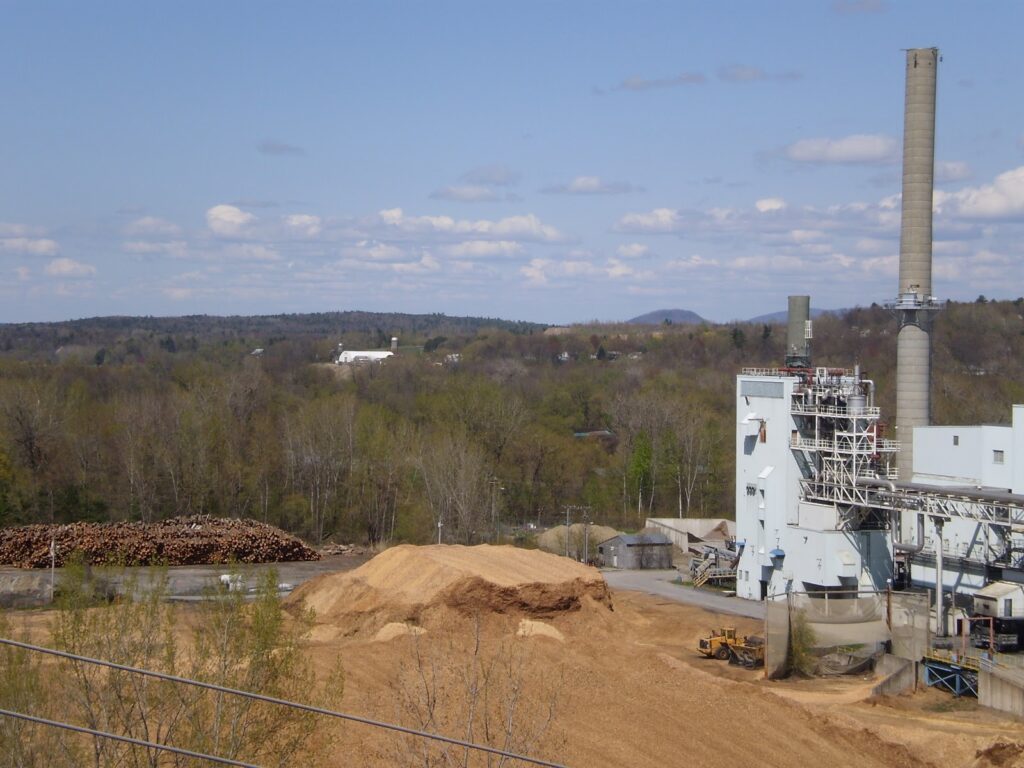Massachusetts has adopted new regulations on biomass power, making it more difficult to qualify for renewable energy credits that enable biomass power plants to remain economically feasible and stay in operation.
Environmental Benefits Questioned
Biomass power, typically produced by burning trees, wood waste, construction debris, cornstalks, or animal waste, generally qualifies for renewable power mandates and subsidies based on the assertion that biomass power is carbon-neutral. Although biomass power emits large amounts of carbon dioxide, which environmental activist groups claim is causing a global warming crisis, biomass proponents say new plant growth made possible by the cultivation of biomass material sequesters as much carbon as is released by burning the cultivated biomass. Accordingly, biomass power proponents say, it is carbon-neutral.
Massachusetts is enacting its more stringent renewable energy credit standards in the wake of a Massachusetts Department of Energy Resources study concluding biomass is not carbon-neutral after all. The study finds new plant growth often takes too long to sequester carbon to be of any global warming benefit until many years or decades have passed. The study also points out much biomass waste material would remain on site, sequestering carbon in the soil and replenishing important soil nutrients, if it were not carted away and burned for power.
To qualify for renewable energy credits under the new regulations, woody biomass plants must emit 50 percent fewer carbon dioxide emissions than combined-cycle natural gas units, conduct a Forest Impact Assessment every five years to assess the negative environmental impacts of removing biomass material from forests, operate at 50 percent efficiency to receive half a renewable energy credit, and operate at 60 percent efficiency to receive a full renewable energy credit.
Not Feasible Without Subsidies
Biomass Magazine writer Anna Simet responded to the new regulations by asserting, “It appears as though stand-alone biomass power will no longer be a feasible option in the state.”
Biomass Power Association President Bob Cleaves told Biomass Magazine, “They essentially shut down a major source of renewable energy for the state, a result at odds with the state’s ambitious renewable energy goals.”
Jay Lehr, science director for the Heartland Institute, says most biomass power facilities cannot compete with conventional power and will have to shut down if their government subsidies disappear.
“With some limited exceptions, biomass power is substantially more expensive than power from conventional energy sources,” Lehr explained. “When government takes money from taxpayers and hands it over to biomass producers, consumers rarely see this money returned to them in the form of lower energy costs. Instead, the subsidies merely enable biomass facilities to produce and sell to consumers higher-priced power than consumers would otherwise purchase.
“Biomass subsidies hurt consumers on the front end via direct taxpayer handouts to biomass power producers, and hurt consumers on the back end via higher energy costs in consumer electricity bills. It is a lose-lose situation for consumers,” said Lehr.
James M. Taylor ([email protected]) is managing editor of Environment & Climate News.





